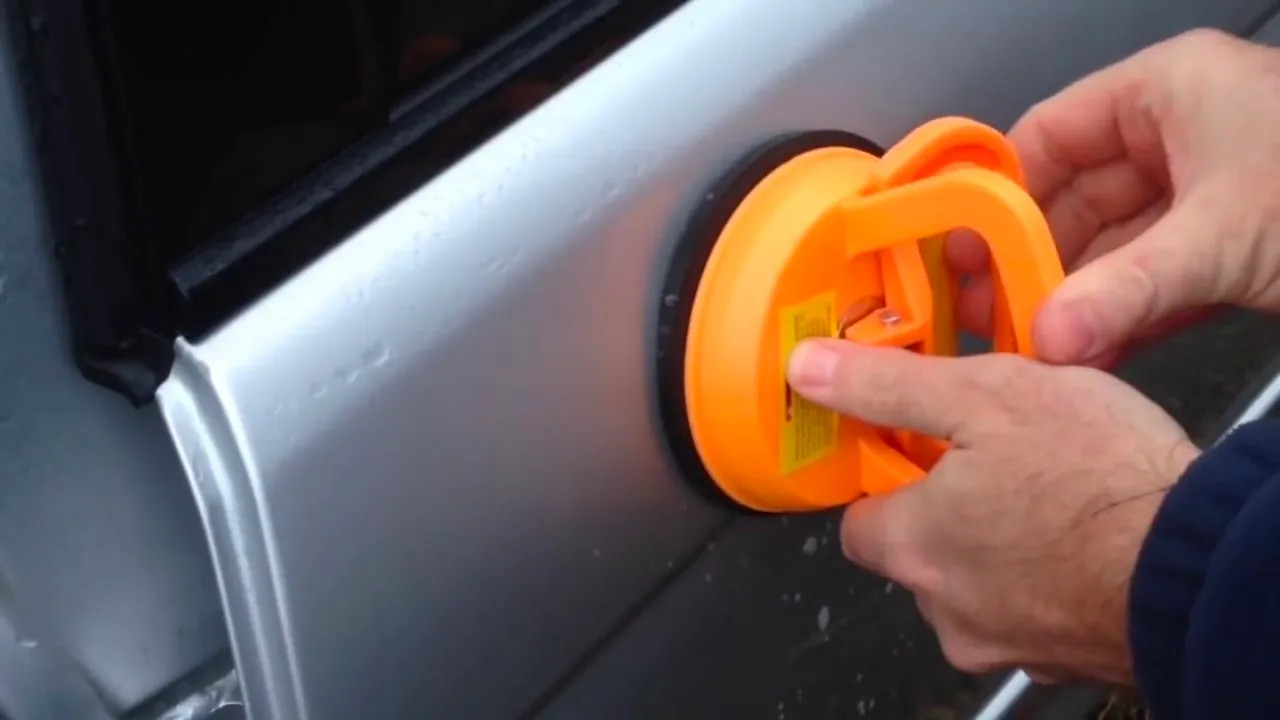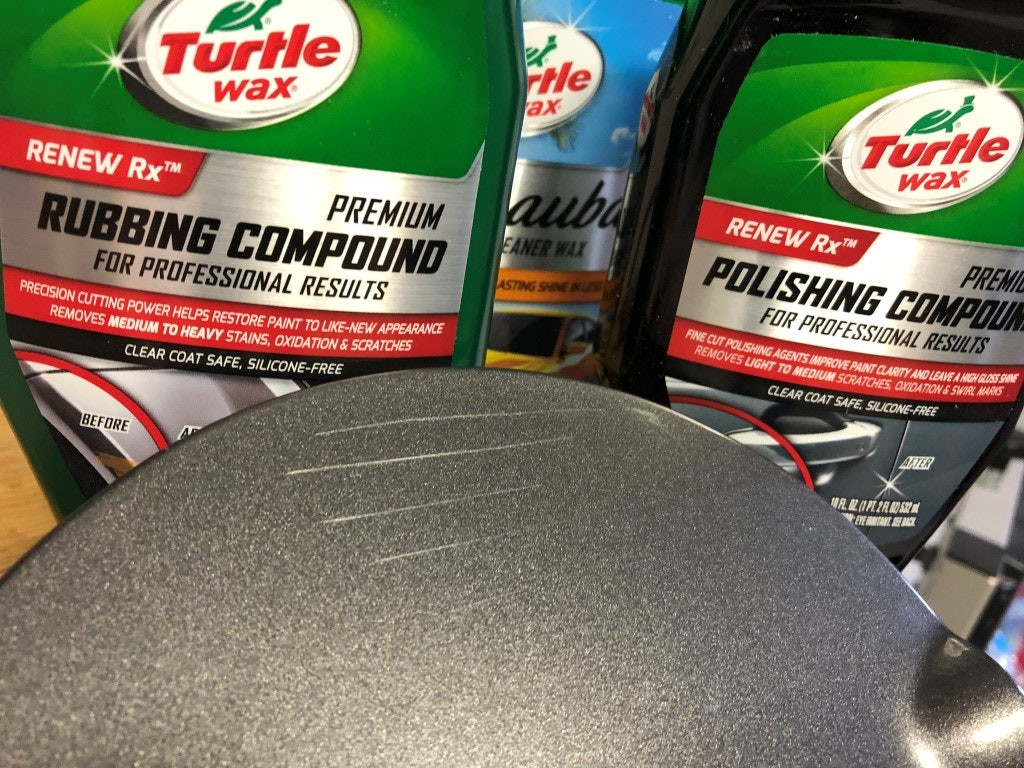Where to Fix Car AC: Your Ultimate Repair Guide
Where to fix car AC? Discovering the ideal spot to mend your vehicle’s air conditioning system can significantly affect your driving comfort and overall expenses. CARDIAGTECH.NET is here to help you navigate the complexities of car AC repair, ensuring you find reliable service and understand the costs involved. Let’s explore common AC issues, repair costs, and tips for maintaining a cool, comfortable ride.
1. Understanding Your Car’s AC System
Before diving into “where to fix car AC,” it’s essential to grasp the basics of your vehicle’s air conditioning system. Often referred to as HVAC (Heating, Ventilation, and Air Conditioning), this complex system goes beyond simply blowing cool air. It manages temperature, airflow, and air quality within your car, involving a fascinating process:
- The Compressor: Connected to the engine via a belt, the compressor pressurizes the refrigerant gas, leading to heat and high pressure.
- The Condenser: The high-pressure gas moves to the condenser, where it cools down and transforms into a liquid.
- The Dryer: The liquid refrigerant passes through the dryer, ensuring no gas remains as it proceeds.
- The Expansion Valve/Orifice Tube: This controls the flow of refrigerant to the evaporator.
- The Evaporator: Here, the liquid refrigerant absorbs heat from the car’s interior, turning back into a gas.
- The Fan: Air is blown across the evaporator, cooling it and circulating cool air into the cabin.
- Back to the Compressor: The gas returns to the compressor, restarting the cycle.
For your AC to function optimally, it needs to be free of contaminants and have the correct amount of refrigerant. Regular maintenance and timely repairs are crucial for a comfortable driving experience.
2. Common Car AC Problems and Their Costs
When your car’s AC isn’t performing as it should, several issues could be at play. Understanding these problems can help you better assess repair options and costs.
2.1 Refrigerant Leaks
The AC system operates under high pressure, making it susceptible to leaks. While a small amount of refrigerant loss (less than an ounce per year) is normal, significant leaks can cause major problems. These leaks often occur due to:
- Damaged O-rings: Inexpensive to replace (around $10 for a pack), but labor costs can add up due to the system depressurization and evacuation required.
- Hose damage: Hoses can crack or become brittle over time, leading to leaks. Hose replacement can vary in cost depending on the vehicle model and hose accessibility.
- Compressor seal failure: If the compressor runs with low refrigerant for too long, it can fail, necessitating a more expensive replacement.
Repairing leaks promptly not only restores your AC’s cooling power but also prevents further damage to the system.
2.2 Faulty Compressor
The compressor is the heart of your car’s AC system. Signs of a failing compressor include:
- No cool air from the vents
- Unusual noises during AC operation
- Fluid leaks near the compressor
Replacing a compressor is a significant repair that should be handled by a trained technician. Special tools are needed, and the process can be labor-intensive, increasing the overall cost.
2.3 Clogged Cabin Air Filter
A dirty cabin air filter can severely restrict airflow from the AC vents, leading to poor cooling performance. You might also notice:
- Dust and pollutants entering the cabin
- Reduced airflow even on high settings
- Musty odors
Cabin air filters should be replaced every 15,000 to 30,000 miles, as recommended in your vehicle’s owner’s manual. In many cases, this is a simple DIY task, but professional replacement is also available for those who prefer it.
2.4 Other AC Components
The HVAC system includes numerous other components that can fail, such as:
- Evaporator: Can leak or become clogged.
- Condenser: Can be damaged by debris or corrosion.
- Dryer: Can become saturated, reducing its effectiveness.
- Expansion valve: Can fail to regulate refrigerant flow.
Servicing these components requires careful attention and professional tools to avoid contamination of the entire system. Repairs or replacements can vary in cost depending on the part and labor involved.
3. Average Costs for Car AC Repair Services
Understanding the typical costs associated with car AC repair services can help you budget and make informed decisions. Here are some average price ranges:
| Service | Average Cost | Notes |
|---|---|---|
| AC Recharge (Refrigerant) | $150 – $300 | Includes refrigerant and labor; price varies with the type of refrigerant. |
| Compressor Replacement | $500 – $1200 | Includes the cost of the compressor and labor; can vary by vehicle model. |
| Condenser Replacement | $300 – $800 | Includes the cost of the condenser and labor. |
| Evaporator Replacement | $600 – $1500 | Labor-intensive due to the evaporator’s location; price can vary significantly. |
| Cabin Air Filter Replacement | $30 – $70 | Simple service; DIY option available. |
| Leak Repair (O-rings/Hoses) | $200 – $500 | Cost depends on the location and severity of the leak; includes labor for depressurization. |
Note: Prices can vary depending on your location, the make and model of your car, and the specific repair shop.
4. Where to Fix Car AC: Finding the Right Service Provider
Choosing the right service provider is crucial for effective and reliable AC repair. Here are several options to consider:
4.1 Local Auto Repair Shops
- Pros: Often more affordable than dealerships, offer personalized service, and can build long-term relationships.
- Cons: Quality can vary, so it’s essential to check reviews and certifications.
4.2 Dealerships
- Pros: Certified technicians, use genuine parts, and have specialized knowledge of your car’s make and model.
- Cons: Generally more expensive than independent shops.
4.3 National Auto Service Chains
- Pros: Convenient locations, standardized services, and often offer warranties.
- Cons: Can be pricier than local shops, and quality can vary by location.
4.4 Mobile AC Repair Services
- Pros: Convenient, come to you, and can be cost-effective for simple repairs.
- Cons: Limited service capabilities, may not handle complex issues.
4.5 Online Marketplaces
- Pros: Wide selection of service providers, easy to compare prices and reviews, and convenient booking.
- Cons: Quality can vary, so thorough research is essential.
5. Questions to Ask Before Choosing a Repair Shop
Before entrusting your car’s AC repair to a shop, ask these questions:
- Are you certified to handle AC repairs?
- Do you offer a warranty on parts and labor?
- Can you provide a detailed estimate before starting the work?
- Do you use OEM (Original Equipment Manufacturer) or aftermarket parts?
- Can you explain the problem and the proposed solution in detail?
These questions will help you gauge the shop’s expertise and commitment to quality service.
6. DIY vs. Professional AC Repair
Deciding whether to tackle AC repair yourself or hire a professional depends on your skills, tools, and the complexity of the issue.
6.1 DIY AC Repair
- Pros: Save money, learn about your car, and have control over the process.
- Cons: Requires technical knowledge, specialized tools, and can be time-consuming.
Simple DIY Tasks:
- Replacing the cabin air filter
- Adding refrigerant with a recharge kit (for minor leaks)
Complex DIY Tasks (Proceed with Caution):
- Replacing the compressor
- Repairing leaks in the system
- Evacuating and recharging the system
6.2 Professional AC Repair
- Pros: Ensures proper diagnosis and repair, saves time, and comes with a warranty.
- Cons: Can be more expensive than DIY, requires finding a reputable shop.
When to Choose Professional Repair:
- Major component failures (compressor, condenser, evaporator)
- Complex leak repairs
- System evacuation and recharge
- If you lack the tools or expertise
7. Maintaining Your Car’s AC System for Longevity
Preventive maintenance can extend the life of your car’s AC system and prevent costly repairs. Follow these tips:
- Regularly Use Your AC: Even in winter, running your AC for a few minutes each month helps circulate refrigerant and lubricate seals.
- Replace the Cabin Air Filter: Every 15,000 to 30,000 miles to ensure proper airflow and air quality.
- Check Refrigerant Levels: Have a professional check the refrigerant level every year or two.
- Inspect Belts and Hoses: Look for cracks, wear, or leaks and replace as needed.
- Clean the Condenser: Remove debris and dirt to ensure efficient cooling.
8. Maximizing AC Efficiency
Optimizing your car’s AC efficiency not only keeps you comfortable but also saves fuel. Here’s how:
- Park in the Shade: Reduces initial heat buildup inside the car.
- Ventilate Before Turning on AC: Open windows briefly to expel hot air.
- Use Recirculation Mode: After initial cool down, recirculate cabin air for better efficiency.
- Regular Maintenance: Keep AC components clean and well-maintained.
9. The Impact of Refrigerant Type on Repair Costs
The type of refrigerant your car uses can significantly impact repair costs. Older vehicles often use R-134a, while newer models use R-1234yf, which is more environmentally friendly but also more expensive.
| Refrigerant Type | Cost per Pound (Approx.) | Impact on Repair Costs |
|---|---|---|
| R-134a | $50 – $100 | Lower repair costs |
| R-1234yf | $200 – $400 | Higher repair costs |
Knowing the refrigerant type in your car helps you anticipate potential costs when it comes to AC service.
10. Car AC Repair: What CARDIAGTECH.NET Offers
At CARDIAGTECH.NET, we understand the importance of a properly functioning AC system. Whether you are a seasoned technician or a DIY enthusiast, having access to the right tools can make all the difference. We offer a wide range of high-quality tools and equipment to help you diagnose and repair your car’s AC system efficiently.
10.1 Our Products
- Manifold Gauge Sets: For accurate pressure readings
- Vacuum Pumps: To remove moisture and air from the system
- Leak Detectors: To pinpoint refrigerant leaks
- Refrigerant Recovery Machines: For safe and efficient refrigerant handling
- Compressor Service Tools: For compressor maintenance and repair
10.2 Why Choose CARDIAGTECH.NET?
- Quality Assurance: We only offer tools from trusted brands known for their durability and accuracy.
- Competitive Pricing: Our prices are competitive, ensuring you get the best value for your money.
- Expert Support: Our team of experts is available to answer your questions and provide guidance.
- Wide Selection: We stock a wide range of tools to meet all your AC repair needs.
11. Ensuring Trust and Credibility (E-E-A-T)
When it comes to car AC repair, it’s crucial to choose a trusted source of information and services. CARDIAGTECH.NET adheres to the highest standards of Expertise, Experience, Authoritativeness, and Trustworthiness (E-E-A-T) to ensure you receive reliable and accurate information.
11.1 Expertise
Our content is created by experienced automotive technicians and industry experts who understand the intricacies of car AC systems. We provide detailed, accurate information to help you make informed decisions.
11.2 Experience
With years of experience in the automotive industry, CARDIAGTECH.NET has built a reputation for providing high-quality tools and equipment. We understand the challenges faced by technicians and DIY enthusiasts and offer solutions tailored to your needs.
11.3 Authoritativeness
CARDIAGTECH.NET is a trusted source for car AC repair information. We are committed to providing accurate and up-to-date content that is backed by research and industry best practices.
11.4 Trustworthiness
Trust is paramount. We are transparent about our processes and policies, ensuring you can rely on us for honest and reliable information. We also encourage you to read reviews and testimonials from our satisfied customers.
12. Call to Action: Get Your AC Ready for the Road
Is your car’s AC not performing as it should? Don’t wait until the summer heat to take action. Contact CARDIAGTECH.NET today for expert advice and high-quality tools to get your AC system running smoothly.
13. Real-World Examples of AC Repair
To illustrate the importance of proper AC maintenance and repair, consider these examples:
Example 1: The Case of the Overheated Compressor
John, a taxi driver in Houston, noticed his AC was blowing warm air. Ignoring the issue, he continued driving, causing the compressor to overheat and fail completely. The repair cost him $1,200, plus lost income during the downtime. Regular checks and maintenance could have prevented this costly failure.
Example 2: The Benefit of Regular Filter Changes
Maria, a soccer mom in San Diego, had her AC checked annually. Her technician recommended replacing the cabin air filter, which was heavily clogged. This simple task improved airflow, enhanced cooling efficiency, and prevented musty odors, costing her only $50.
14. How to Prepare for an AC Repair Appointment
Preparing for your AC repair appointment can streamline the process and ensure you get the best service.
- Document the Symptoms: Write down when you noticed the problem, what you hear or smell, and how the AC is performing.
- Check Your Warranty: See if your AC or related components are covered.
- Gather Your Car’s Information: Have your car’s make, model, and year ready.
- Ask Questions: Prepare a list of questions for the technician.
15. Understanding Diagnostic Tests for AC Issues
Diagnostic tests are crucial for accurately identifying AC problems. Here are some common tests:
- Pressure Test: Measures the pressure within the AC system to identify leaks or blockages.
- Leak Detection Test: Uses dye or electronic sniffers to locate refrigerant leaks.
- Performance Test: Evaluates the cooling efficiency of the AC system.
- Visual Inspection: Checks for visible damage to components like belts, hoses, and the compressor.
16. Seasonal AC Maintenance Tips
Different seasons can impact your car’s AC system differently. Here are some seasonal maintenance tips:
- Spring: Check and clean the condenser after winter debris buildup.
- Summer: Monitor AC performance during peak heat; check refrigerant levels.
- Fall: Inspect hoses and belts for wear and tear before winter.
- Winter: Run AC occasionally to circulate refrigerant and lubricate seals.
17. Navigating AC Repair Warranties
Understanding your AC repair warranty can save you money and hassle. Here are some tips:
- Read the Fine Print: Know what’s covered and what’s not.
- Keep Records: Maintain all repair receipts and warranty documents.
- Follow Maintenance Requirements: Adhere to the recommended maintenance schedule to keep your warranty valid.
- Understand the Terms: Know the duration, limitations, and claim process.
18. Key Warning Signs Your AC Needs Attention
Being proactive about AC maintenance can prevent major issues. Here are warning signs to watch out for:
- Weak Airflow: Indicates a clogged filter or failing blower motor.
- Warm Air: Points to low refrigerant or compressor issues.
- Unusual Noises: Suggests a failing compressor or other mechanical problems.
- Musty Odors: Indicates mold or mildew in the evaporator core.
- Visible Leaks: Signals refrigerant leaks that need immediate attention.
19. How AC Repair Affects Vehicle Resale Value
A well-maintained AC system can increase your vehicle’s resale value. Buyers prioritize comfort, and a functional AC system is a major selling point. Keeping your AC in top condition demonstrates overall vehicle care, potentially fetching a higher price.
20. Addressing AC Odors
Unpleasant odors from your car’s AC can indicate various issues. Here’s how to address them:
- Musty Smell: Often due to mold in the evaporator core. Clean the system with an AC cleaner.
- Sweet Smell: Could indicate a refrigerant leak. Have the system inspected.
- Burning Smell: Suggests electrical or mechanical issues. Seek professional help immediately.
- Vinegar Smell: May indicate bacteria in the system. Use an antibacterial AC treatment.
21. Environmentally Responsible AC Repair
Environmentally responsible AC repair is crucial for protecting the planet. Always ensure refrigerant is recovered and disposed of properly to prevent ozone depletion. Use eco-friendly refrigerants when possible and choose repair shops that follow environmental best practices.
22. Debunking Common AC Myths
There are several myths surrounding car AC systems. Let’s debunk some:
- Myth: Running AC always reduces fuel efficiency.
- Fact: While it can, modern AC systems are designed to minimize fuel consumption.
- Myth: AC recharge is a permanent fix.
- Fact: Recharge addresses low refrigerant but doesn’t fix underlying leaks.
- Myth: Any refrigerant can be used in any car.
- Fact: Using the wrong refrigerant can damage the system.
23. The Role of Technology in Modern AC Systems
Modern car AC systems are becoming increasingly sophisticated, incorporating technologies like:
- Automatic Climate Control: Maintains consistent cabin temperature automatically.
- Multi-Zone Control: Allows different temperature settings for various areas of the car.
- Hybrid and Electric Vehicle AC Systems: Often use electric compressors for greater efficiency.
Understanding these technologies can help you better maintain your vehicle.
24. Exploring Government Regulations and AC Repair
Government regulations play a role in AC repair, particularly concerning refrigerant handling and environmental protection. Technicians must be certified to handle refrigerants, and shops must adhere to strict guidelines to prevent leaks and pollution.
25. AC System Components and Their Functions
Understanding the function of each component in your AC system can help you diagnose problems more effectively:
- Compressor: Compresses refrigerant and circulates it through the system.
- Condenser: Dissipates heat from the refrigerant.
- Evaporator: Absorbs heat from the cabin air.
- Expansion Valve/Orifice Tube: Controls refrigerant flow into the evaporator.
- Receiver/Drier: Removes moisture and contaminants from the refrigerant.
26. The Evolution of Car AC Systems
Car AC systems have evolved significantly over the years, from simple, manually controlled systems to advanced, computer-controlled climate control systems. Understanding this evolution can provide valuable insight into maintaining older and newer vehicles.
27. Innovative AC Repair Techniques
Innovative AC repair techniques are constantly emerging. Examples include:
- UV Dye Leak Detection: Uses ultraviolet light to quickly locate refrigerant leaks.
- Electronic Leak Detectors: Offer precise leak detection without the need for dyes.
- Wireless Diagnostic Tools: Allow technicians to diagnose AC problems remotely.
28. Common Misconceptions About AC Recharge
There are several misconceptions about AC recharge services:
- Misconception: AC recharge fixes all AC problems.
- Fact: It only addresses low refrigerant levels.
- Misconception: You can recharge your AC yourself without any training.
- Fact: Improper recharge can damage the system.
- Misconception: More refrigerant is better.
- Fact: Overfilling the system can cause damage.
29. Tips for Finding the Best Deals on AC Repair
Finding the best deals on AC repair requires some research:
- Get Multiple Estimates: Compare prices from different shops.
- Look for Coupons: Check for online coupons or discounts.
- Ask About Package Deals: Inquire about bundled services for potential savings.
- Consider Off-Peak Times: Some shops offer lower rates during slower periods.
30. Case Studies: Successful AC Repairs
Analyzing successful AC repair case studies can provide valuable insights:
- Case Study 1: A shop diagnosed a faulty expansion valve, restoring AC performance and saving the customer from a compressor replacement.
- Case Study 2: Regular cabin air filter replacements prevented evaporator core damage and maintained optimal airflow.
31. Why Regular AC Checks Matter
Regular AC checks are essential for preventing major issues:
- Early Detection: Catches minor problems before they escalate.
- Cost Savings: Prevents expensive repairs by addressing issues early.
- Performance: Ensures optimal cooling efficiency.
- Longevity: Extends the life of your AC system.
32. Exploring Hybrid and Electric Vehicle AC Systems
Hybrid and electric vehicles (EVs) often use different AC systems than traditional gasoline-powered cars. These systems typically rely on electric compressors, which can operate independently of the engine. Understanding these unique AC systems is crucial for proper maintenance and repair.
33. The Importance of AC System Cleanliness
A clean AC system is vital for both performance and air quality:
- Prevents Odors: Reduces the growth of mold and bacteria.
- Improves Airflow: Ensures efficient cooling.
- Extends Component Life: Reduces wear and tear on AC parts.
- Enhances Air Quality: Filters out dust and pollutants.
34. How to Find Reliable AC Repair Information Online
Finding reliable AC repair information online requires careful evaluation:
- Check Sources: Look for reputable websites and trusted automotive experts.
- Verify Information: Cross-reference information with multiple sources.
- Read Reviews: See what other users say about the information.
- Beware of Myths: Be skeptical of claims that sound too good to be true.
35. The Impact of Climate on AC Performance
Your local climate can significantly impact your car’s AC performance. Hot, humid climates put more strain on the system, requiring more frequent maintenance. Coastal areas may experience more corrosion, while desert climates can lead to overheating.
36. Understanding Different Types of Refrigerant Leaks
Different types of refrigerant leaks require different repair approaches:
- Slow Leaks: Often caused by worn seals or O-rings.
- Fast Leaks: Typically result from damaged components like hoses or the condenser.
- Internal Leaks: Can occur within the compressor or other components.
37. The Future of Car AC Technology
The future of car AC technology is evolving rapidly:
- Smart AC Systems: Integrating with vehicle telematics for predictive maintenance.
- More Efficient Refrigerants: Developing eco-friendly alternatives.
- Advanced Filtration Systems: Improving air quality and reducing allergens.
38. AC Repair Tools and Equipment Available at CARDIAGTECH.NET
At CARDIAGTECH.NET, we offer a comprehensive range of AC repair tools and equipment to meet your needs. Our selection includes:
-
Manifold Gauge Sets: For accurate pressure readings.
-
Vacuum Pumps: To remove moisture and air from the system.
-
Leak Detectors: To pinpoint refrigerant leaks.
-
Refrigerant Recovery Machines: For safe and efficient refrigerant handling.
-
Compressor Service Tools: For compressor maintenance and repair.
Contact us today at 276 Reock St, City of Orange, NJ 07050, United States or WhatsApp at +1 (641) 206-8880. Visit our website at CARDIAGTECH.NET.
FAQ Section:
1. How often should I recharge my car AC?
- Typically, every 2-3 years, but it depends on how well the system is sealed.
2. What are the signs of a refrigerant leak?
- Warm air blowing from the vents, hissing sounds, and visible leaks.
3. Can I use any refrigerant in my car AC?
- No, use the refrigerant specified in your car’s manual.
4. What is the average cost to replace a car AC compressor?
- Between $500 and $1200, including parts and labor.
5. How can I improve my car AC’s efficiency?
- Park in the shade, use recirculation mode, and keep the system maintained.
6. What is the purpose of the cabin air filter?
- To filter out dust, pollen, and pollutants from entering the cabin.
7. Should I run my car AC in the winter?
- Yes, to keep the seals lubricated and prevent them from drying out.
8. What does it mean if my AC smells musty?
- It indicates mold or mildew in the evaporator core.
9. How do I find a reputable AC repair shop?
- Check reviews, ask for recommendations, and verify certifications.
10. What tools do I need for DIY AC repair?
- Manifold gauge set, vacuum pump, leak detector, and refrigerant.






